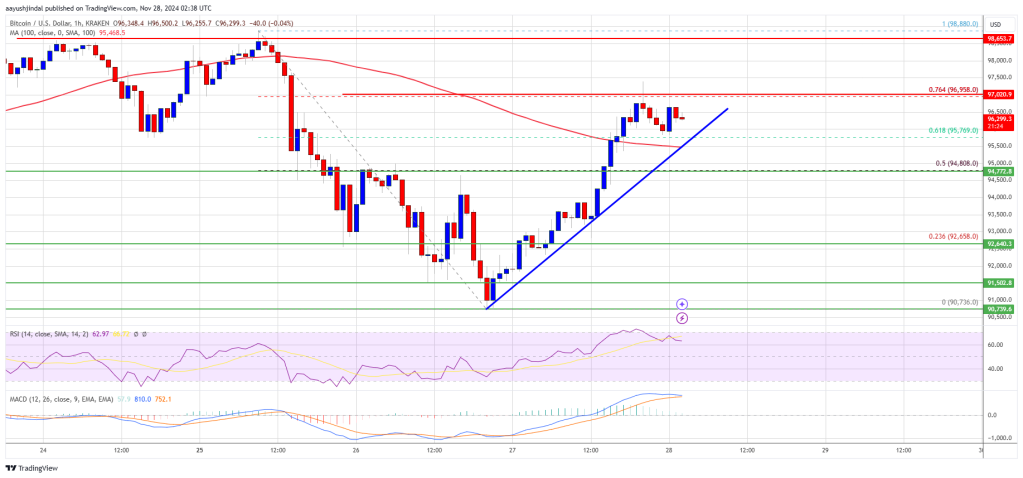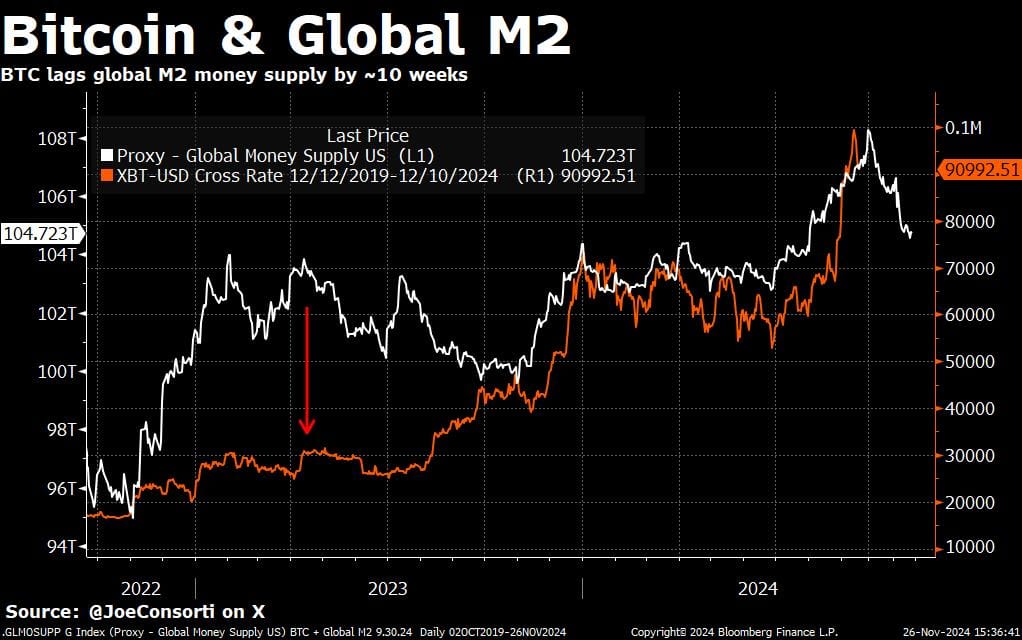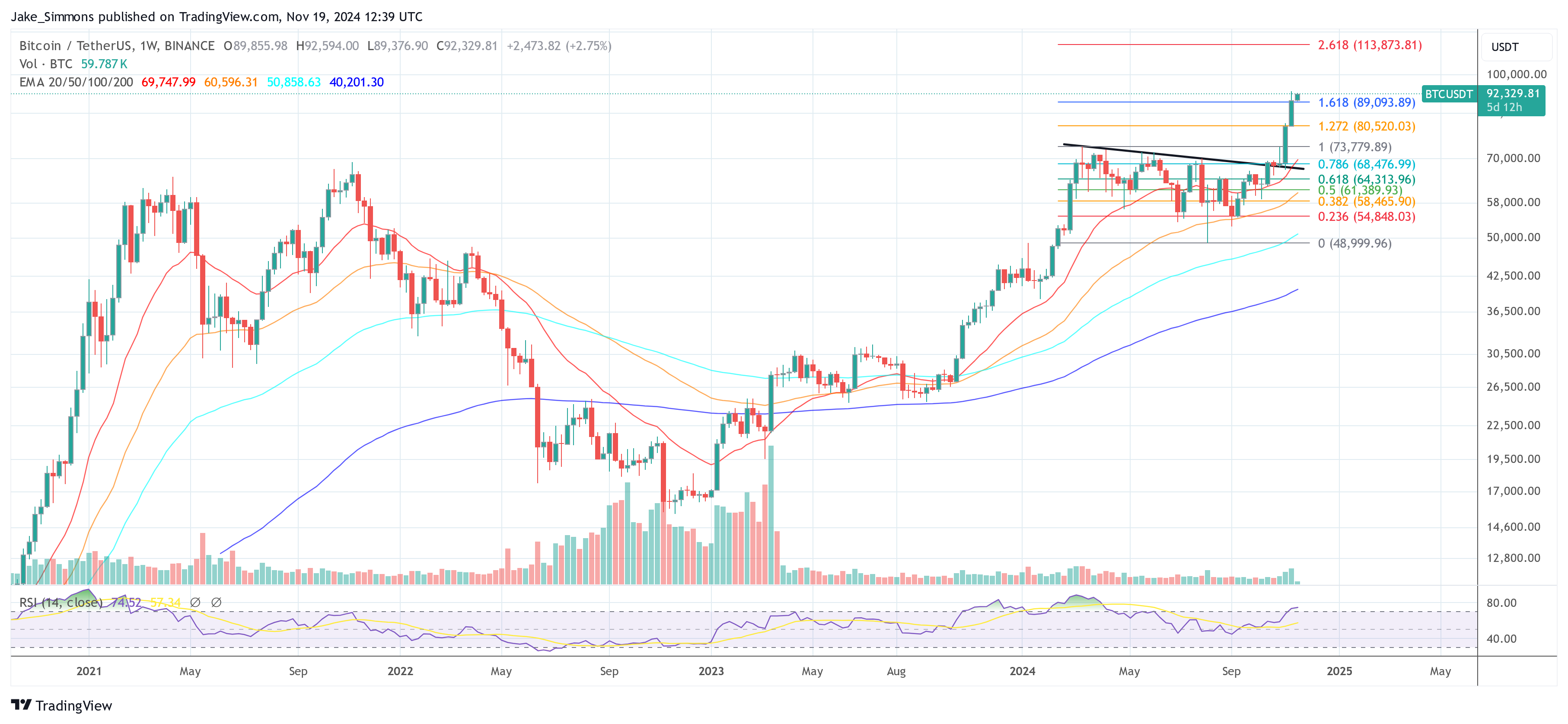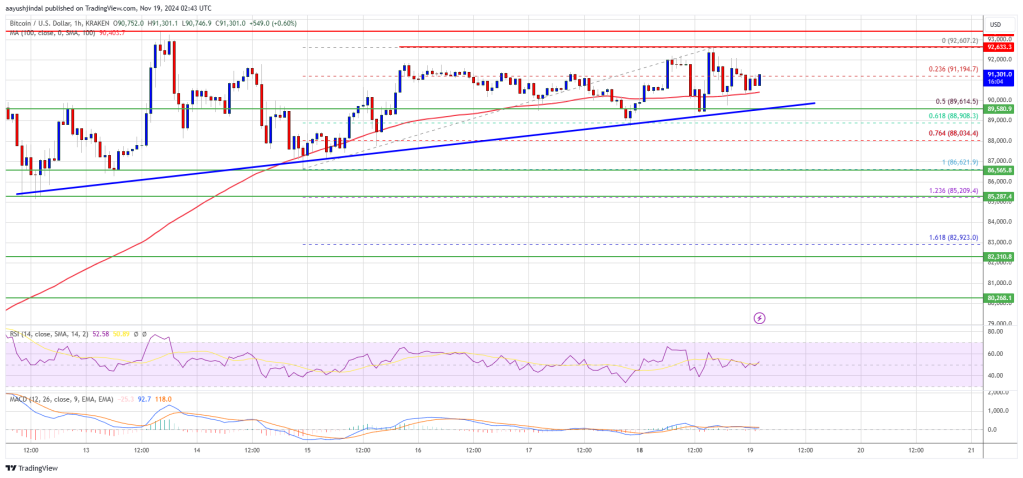Will Bitcoin observe a repeat of the rebound that took place after the crash back in March? Here’s what this on-chain metric suggests.
As an analyst in a CryptoQuant post explained, if the BTC short-term holder SOPR crosses above 1 in the coming days, a rebound might occur. The “Spent Output Profit Ratio” (SOPR) here refers to an indicator that tells us whether the investors are selling their Bitcoin at a profit or a loss right now.
When the value of this metric is greater than 1, it means that the average holder is currently moving their coins at a profit. On the other hand, values under this threshold imply that loss-taking is the dominant behavior in the market.
The SOPR being precisely equal to one naturally suggests that the investors are just breaking-even on their selling currently, as the total amount of profits realized in the market is precisely canceling out the losses.
In the context of the current discussion, the SOPR for only a specific market segment is of interest. Namely, the short-term holder (STH) SOPR is the relevant metric.
Here is a chart that shows the trend in the 7-day simple moving average (SMA) Bitcoin STH SOPR over the past few months:

The STH group includes investors who purchased their BTC less than 155 days ago. This cohort makes up one of the two main segments of the market, the other side being the “long-term holders” (LTHs).
As displayed in the graph, the 7-day Bitcoin STH SOPR had been floating around the neutral mark before the recent crash, but following it, the metric has plunged into the loss territory. This would suggest that the STHs have been panic-selling at a loss after they witnessed the cryptocurrency register a deep drawdown.
The chart shows that the crash back in March of this year also pushed the STHs into selling at a loss. The lowest value that the 7-day STH SOPR has seen in the current crash so far has been similar to what the March crash observed.
Historically, capitulation has allowed the asset to form bottoms, as in such events, the weak hands exit the market, and the more persistent investors may pick up their coins.
This effect seems to have worked in March, as the coin hit its bottom during the STHs’ capitulation. As the loss selling slowed down, Bitcoin rebounded in speculator fashion, as its price jumped below $20,000 to near the $30,000 mark.
Currently, the STHs’ loss selling is slowing down, as the metric’s value is gradually rising. The latest capitulation may have also allowed BTC to form a bottom this time. It remains to be seen whether that was the case, and if Bitcoin can show a rebound similar to back in March.
At the time of writing, Bitcoin is trading around $26,000, down 11% in the last week.

Bitcoin Short-Term Holder SOPR Is Showing A Pattern Similar To March
As an analyst in a CryptoQuant post explained, if the BTC short-term holder SOPR crosses above 1 in the coming days, a rebound might occur. The “Spent Output Profit Ratio” (SOPR) here refers to an indicator that tells us whether the investors are selling their Bitcoin at a profit or a loss right now.
When the value of this metric is greater than 1, it means that the average holder is currently moving their coins at a profit. On the other hand, values under this threshold imply that loss-taking is the dominant behavior in the market.
The SOPR being precisely equal to one naturally suggests that the investors are just breaking-even on their selling currently, as the total amount of profits realized in the market is precisely canceling out the losses.
In the context of the current discussion, the SOPR for only a specific market segment is of interest. Namely, the short-term holder (STH) SOPR is the relevant metric.
Here is a chart that shows the trend in the 7-day simple moving average (SMA) Bitcoin STH SOPR over the past few months:

The STH group includes investors who purchased their BTC less than 155 days ago. This cohort makes up one of the two main segments of the market, the other side being the “long-term holders” (LTHs).
As displayed in the graph, the 7-day Bitcoin STH SOPR had been floating around the neutral mark before the recent crash, but following it, the metric has plunged into the loss territory. This would suggest that the STHs have been panic-selling at a loss after they witnessed the cryptocurrency register a deep drawdown.
The chart shows that the crash back in March of this year also pushed the STHs into selling at a loss. The lowest value that the 7-day STH SOPR has seen in the current crash so far has been similar to what the March crash observed.
Historically, capitulation has allowed the asset to form bottoms, as in such events, the weak hands exit the market, and the more persistent investors may pick up their coins.
This effect seems to have worked in March, as the coin hit its bottom during the STHs’ capitulation. As the loss selling slowed down, Bitcoin rebounded in speculator fashion, as its price jumped below $20,000 to near the $30,000 mark.
Currently, the STHs’ loss selling is slowing down, as the metric’s value is gradually rising. The latest capitulation may have also allowed BTC to form a bottom this time. It remains to be seen whether that was the case, and if Bitcoin can show a rebound similar to back in March.
BTC Price
At the time of writing, Bitcoin is trading around $26,000, down 11% in the last week.







